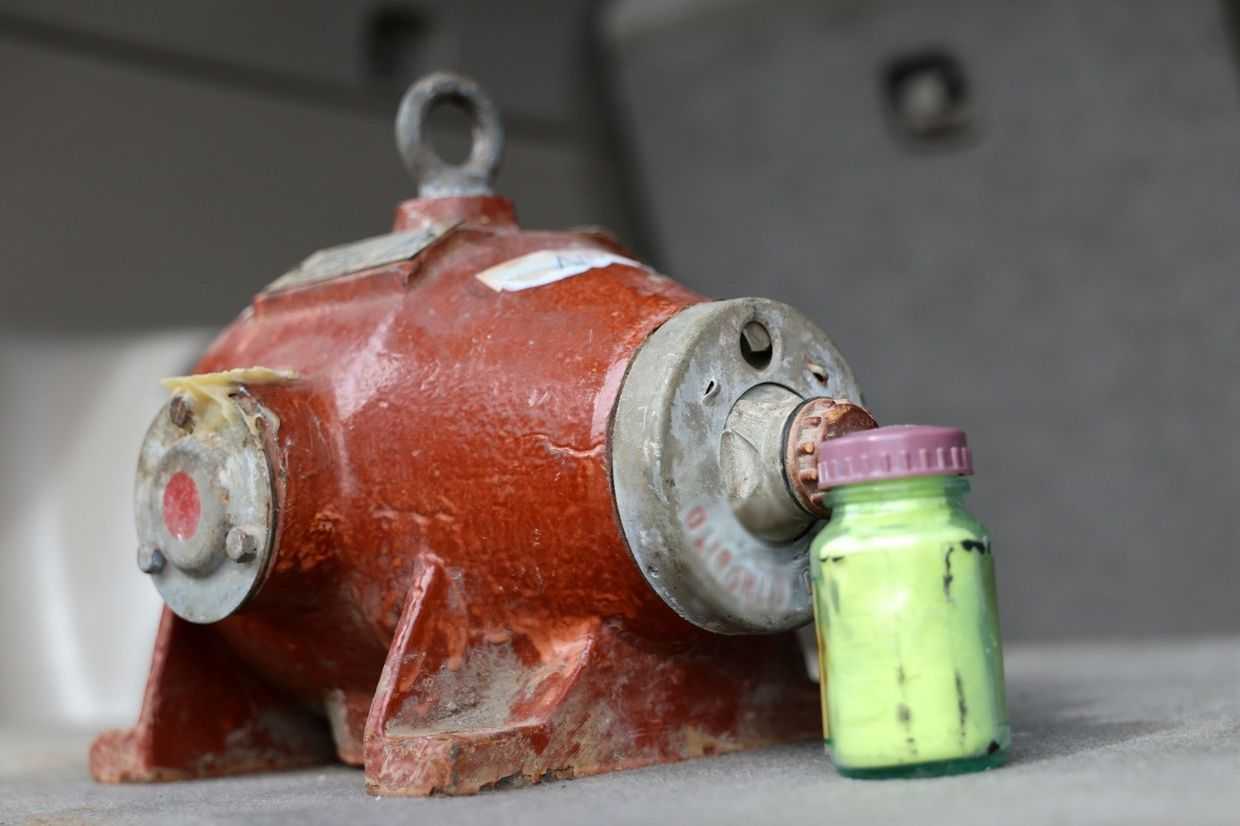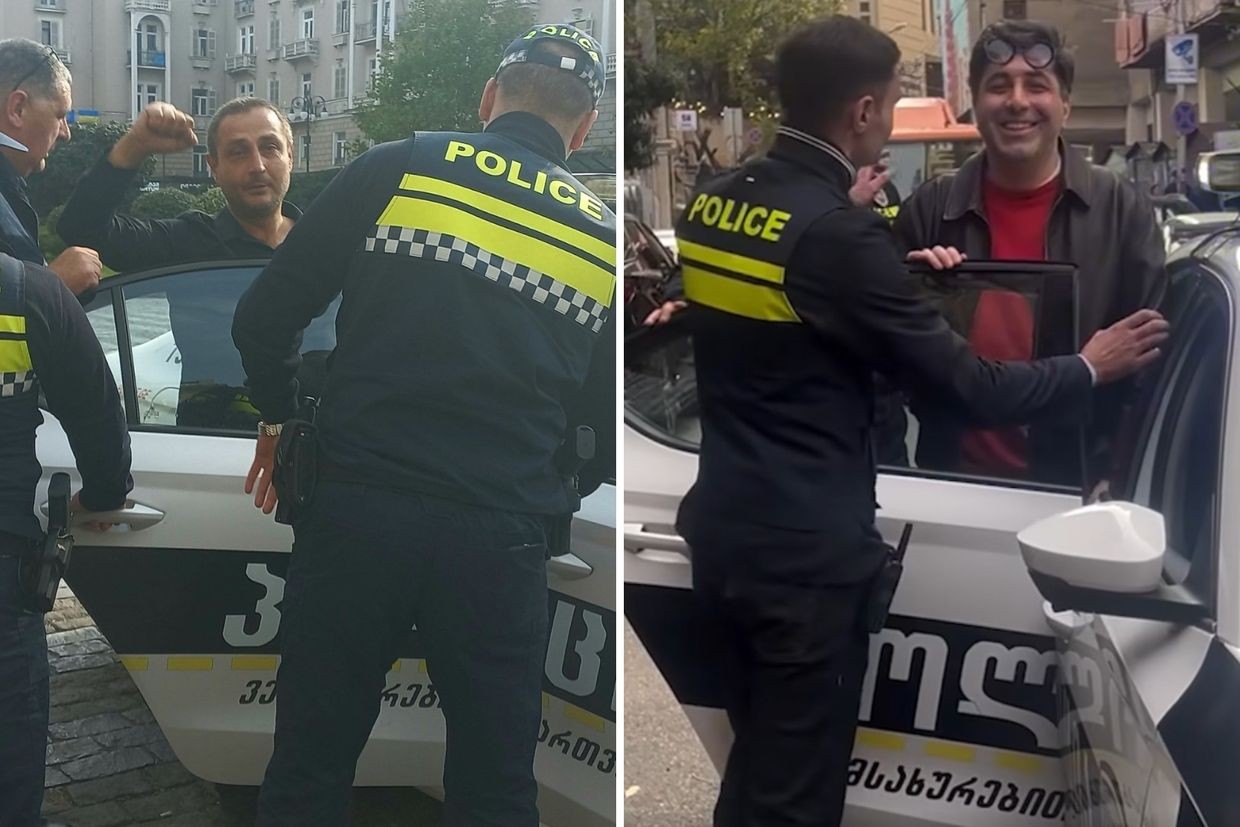
At least 14 people have been arrested over the weekend in Georgia, as restrictive new legislation on blocking roads and the use of face coverings at protests have come into force.
The detentions started on Sunday, three days after the new restrictions came into force. Reports of arrests continued on Monday, with several people already being handed days-long administrative sentences.
The parliament, controlled by the ruling Georgian Dream party and its satellites, rushed through the amendments on Thursday, replacing administrative fines with prison terms for several protest-related actions. This included blocking roads when the police deem the number of demonstrators insufficient, and covering faces during rallies.
Protesters have been blocking the road in front of parliament in central Tbilisi daily since 28 November 2024, when the government announced it was ‘postponing’ the country’s EU application.
After President Mikheil Kavelashvili signed the amendments into law on the same day they were passed, the Interior Ministry began urging the public to clear the roads, with police issuing notices for possible face coverings.
On Sunday, police began arresting protesters identified the previous day, both from their homes and on the streets. Some were charged with blocking roads, others with covering their faces.
Two of those detained — Levan Jobava and Shalva Chubinidze — were handed the longest sentences by the Tbilisi City Court that evening, receiving 14-day detentions.
Among those detained was Vakho Sanaia, a host at the opposition-leaning TV station Formula, who was sentenced to six days in prison. The channel described it as ‘harassment of a journalist and of an independent media as a whole by the regime’, with other media outlets also expressing solidarity with him in a joint statement.
Sanaia’s lawyer described the court’s decision as unjustified, stating that Sanaia had been ‘participating in the protests for over 300 days without committing any legal violations’.
Other detainees included protester Nino Svanidze, who was sentenced to five days for blocking the road, and Lara Nachkebia, who received four days for covering her face.
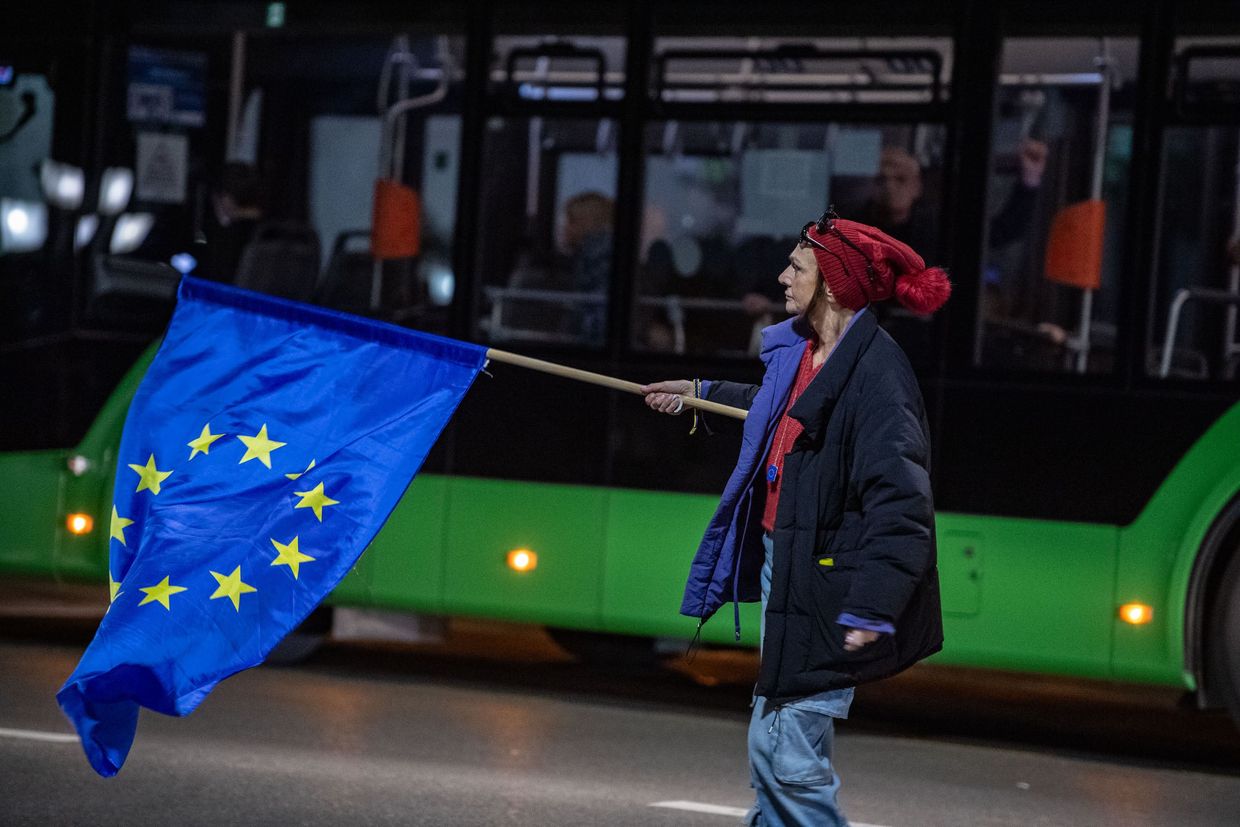
According to Nika Simonishvili, a lawyer and former head of the Georgian Young Lawyers’ Association, police stopped Nachkebia on Saturday evening in central Tbilisi as she was walking on the pavement wearing a scarf.
Some of those detained were released with a verbal warning, while the court hearings of some others were postponed. Among them was Labour Party member Lasha Chkhartishvili, who had been detained while on his way to his mother’s grave on the 40th day after her passing.
The Interior Ministry announced the number of detainees late Sunday, noting that in addition to the 14 already detained, 13 more individuals were under administrative proceedings.
Despite the arrests, citizens still gathered near parliament on Sunday evening, with some blocking the streets. Police stopped and issued a report for 70-year-old Aza Chilachava, a protester and internally displaced person from Abkhazia, reportedly because she had a mask with her.
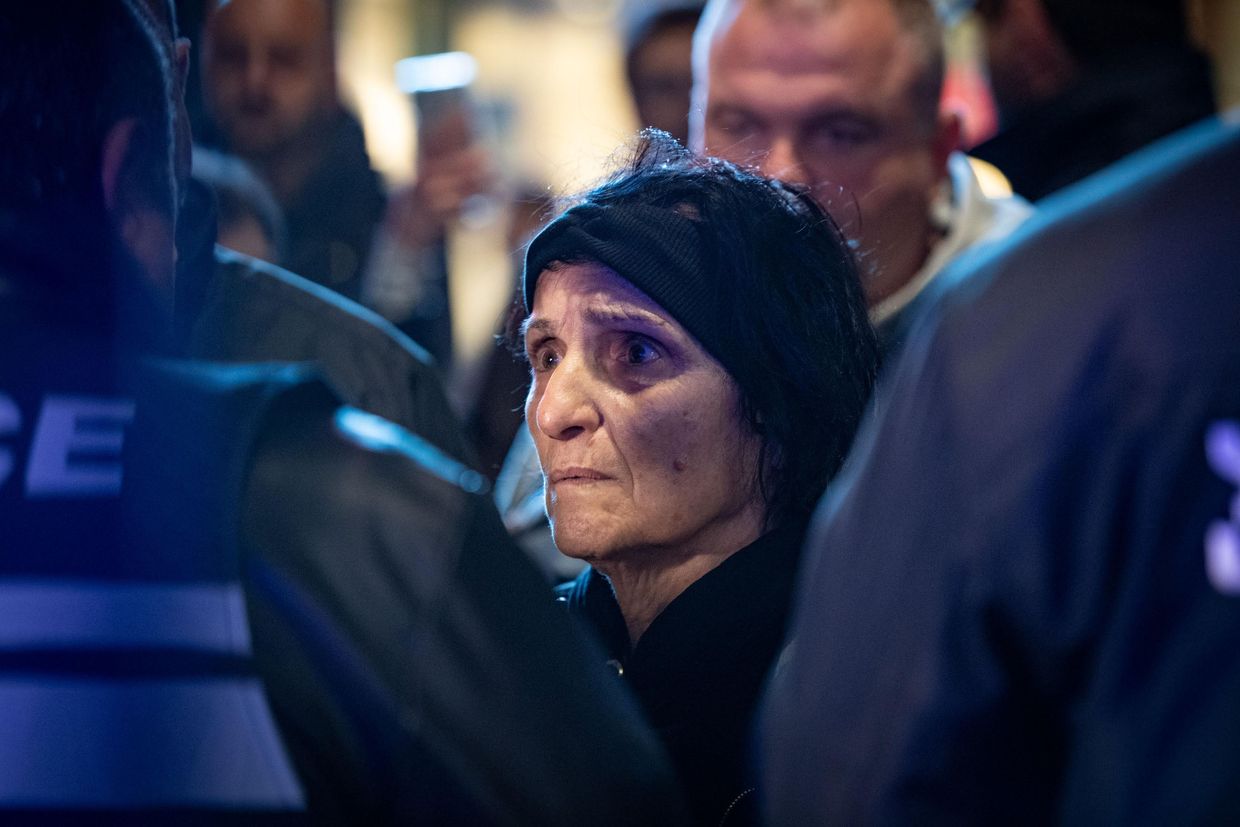
Detentions were reported on Monday as well, with another Formula journalist, Keta Tsitskishvili, among those taken by police.
‘We will eventually win’, Tsitskishvili posted on Facebook on Monday afternoon while reporting that officers approached her.
The Georgian Dream government has previously attempted to suppress daily protests, using brutal police violence at the start of demonstrations and hefty fines afterwards for road blocking — fines that increased tenfold last winter and now amount to ₾5,000 ($1,800).
Despite these measures, the protests have not stopped.
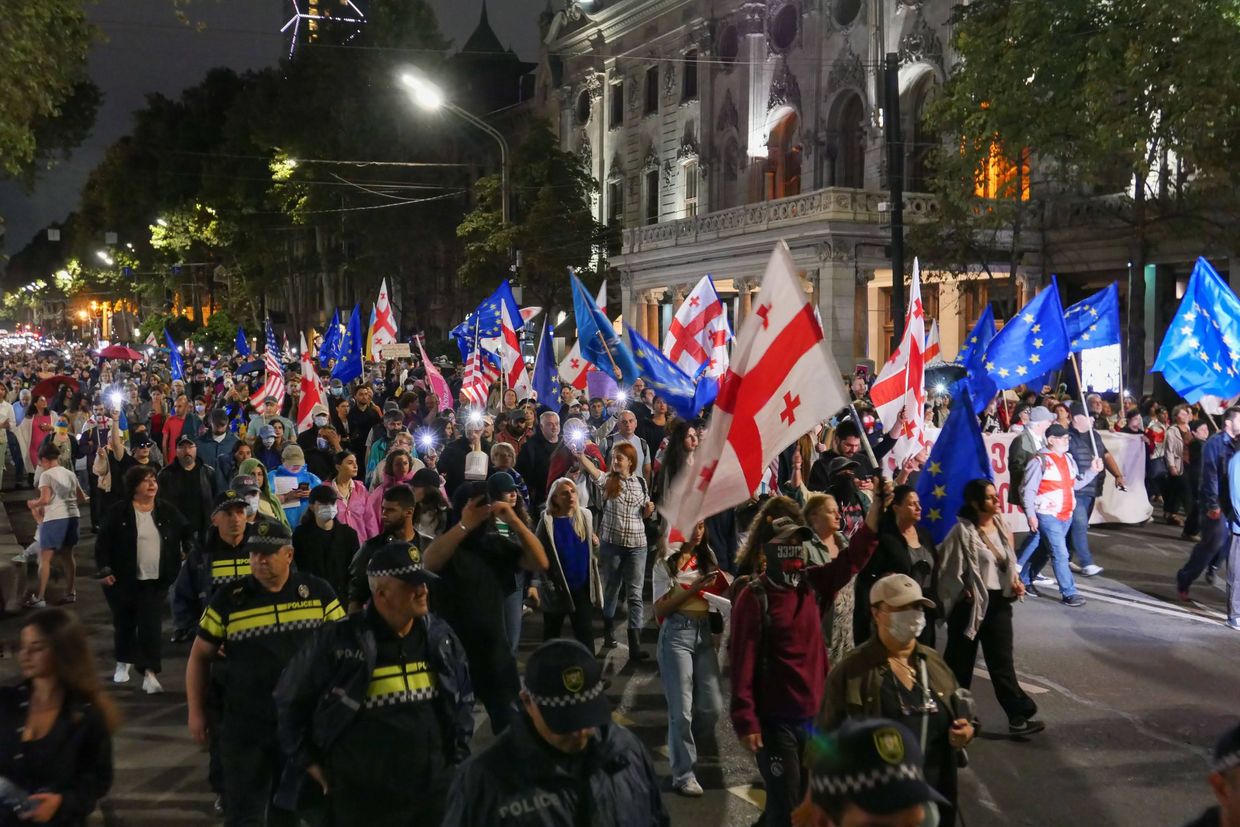
This article was translated into Armenian and republished by our partner CivilNet.







